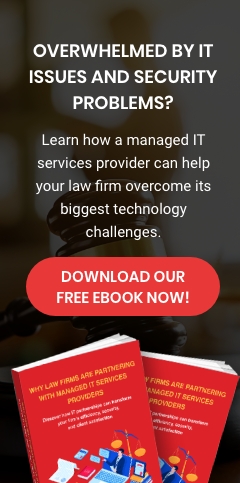Some small-business owners are reluctant to adopt automation for different reasons. They may cite limited resources or funds, vast complexity, or the lack of stakeholder involvement as among the reasons they’d rather not invest in automation. While these are valid reasons not to automate all business processes, automation yields enormous advantages that far outweigh its cons.
What are the benefits of automation, and what business processes should be automated?
According to a study by management consulting firm McKinsey & Company, when done right, automation delivers massive benefits. These include reduced processing time that results in faster service delivery, increased flexibility and scalability, improved product quality, and higher productivity.
Automation also allows you to gather data that will give you insights into your operational strengths and weaknesses. But perhaps one of the most practical benefits of automation is that it enables your staff to work on more worthwhile projects instead of spending too much time on repetitive tasks. It also reduces — if not eliminates — human errors for the basic tasks.
Small businesses have a lot to gain from investing in automation, particularly in these areas.
Payroll
There are multiple steps involved in manual payroll processes, such as calculating different types of payments (bonuses, overtime pay, raises, deductions, etc.) and writing checks, which are usually prone to error. With an automated payroll system, errors are substantially reduced.
Payroll automation software can perform simple and complex tasks, including calculating various payments for different kinds of employees, including permanent, full-time, or freelance staff. It can also perform other functions such as generating paychecks and enabling direct deposit to employees’ bank accounts.
Recruitment
Recruitment is another HR process that involves multiple and repetitive steps. Recruitment automation software streamlines processes like screening resumes, building talent pools, and hiring talents. These types of software leverage AI to make your talent acquisition processes faster and more efficient. You can then spend more time on workforce planning and other more worthwhile endeavors.
Onboarding and employee training
Likewise, automation can be hugely beneficial in onboarding and training employees. It saves your HR staff from having to accomplish multiple steps, which typically include filling out employee forms, collecting employees’ official documents, and setting up bank accounts. Automation reduces the amount of paperwork in onboarding processes and makes them hassle-free.
There are also tools your company can use to document your company’s onboarding and training programs, typically via an online training manual. HR staff can use employee training software to test trainees’ knowledge and track their training progress.
Content marketing
All marketing efforts are aimed at increasing revenue and growth but with minimal costs. The wide variety of tasks involved, however, can be challenging for small businesses with limited staff. Marketing automation helps primarily by automating repetitive tasks and enabling staff to utilize multiple marketing channels for greater efficiency.
Different types of marketing automation software are particularly useful in streamlining workflows involved in lead generation, lead nurturing, market segmentation, scheduling and tracking marketing campaigns, and measuring return on investment. Without automation, these tasks may require numerous spreadsheets and a bigger marketing team.
Meanwhile, customer relationship management (CRM) software is useful in solving sales problems, such as chasing unqualified leads and tracking engagement. From MailChimp to Zoho to Salesforce, there's marketing automation software that can fit any business’s needs and budget.
Social media
One of the main uses of social media automation is to ease the scheduled posting of content on different social media platforms, but there’s so much more you can do with it. You can leverage paid advertising, social media monitoring, and CRM integration in various social media platforms to boost your social media campaigns and overall marketing efforts.
Email marketing
Email marketing is the process of sending timed promotional emails and/or newsletters to subscribers in a mailing list. This involves a number of essential processes, such as managing contact lists, crafting an enticing email, and sending it out to specific target segments. These can all be done manually or with the aid of automation. Tools like MailChimp and Drip ease the aforementioned steps and come with other nifty features that assist in other tasks such as sending follow-up emails, enhancing audience segmentation, and more.
Assessing business areas that can benefit from automation can be daunting for busy business managers. USWired’s team of IT consultants can help you identify automation opportunities and select automation tools suitable for your business’s unique needs and budget. Call us today.


